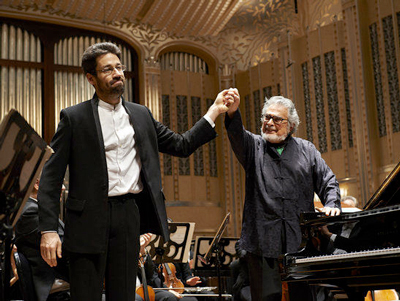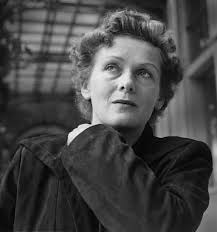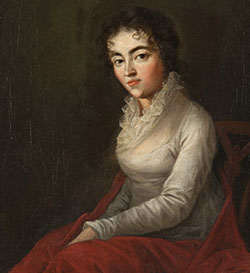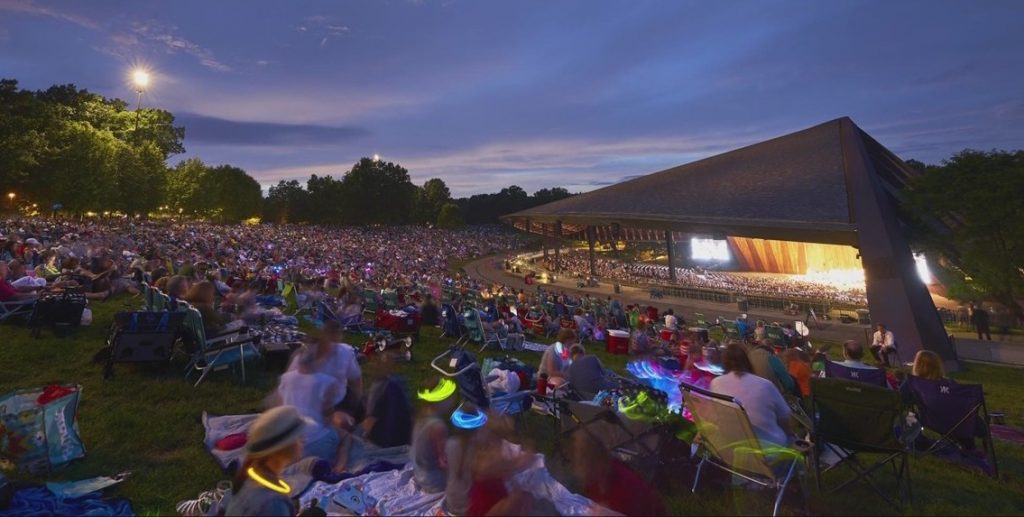by Daniel Hathaway
The Semi-Final Round of the Cleveland International Piano Competition continues this weekend in Reinberger Chamber Hall at Severance Music Center.
Six competitors will each play 25-30 minute solo recitals, followed by the performance of a trio of their choice with violinist Maria Ioudenitch and cellist Gabriel Martins. Attend in person or watch a live stream (tickets and details here).
Here is the schedule for the weekend sessions of the Semi-Finals:
Friday, August 2 at 7 PM:
Jonathan Mamora, (29, United States) & Zhu Wang (27, China)
Saturday, August 3 at 2 PM:
Evren Ozel (25, United States) & Mirabelle Kajenjeri (26, France)
Sunday, August 4 at 2 PM:
Giuseppe Guarrera (32, Italy) & Zijian Wei (25, China)
Other CIPC events include a Family Fun Day at Disciples Church beginning on Saturday at 10 am, and a Jury Roundtable on Sunday at Noon.
The Cleveland Orchestra continues to go to the movies with live performances of Howard Shore’s score for The Lord of the Rings: The Return of the King from Friday through Sunday at 7 pm at Blossom (pictured above).
On Saturday, Cleveland Chamber Collective presents Music of America VI with works by Caroline Shaw, Missy Mazzoli, Jessie Montgomery, Michael Oesterle, Trevor Kazarian, and Eric Charnofsky at Disciples Christian Church (it’s free), and on Sunday at 7:30, the Akron Symphony plays an outdoor concert at Firestone Park.
For details of these and other classical events, visit the ClevelandClassicaal.com Concert Listings.
WEEKEND ALMANAC:
August 2 — by Stephanie Manning:

But it was the Cleveland Orchestra with which the pianist formed the strongest relationship. Fleisher became known for his outstanding recordings with the Orchestra and George Szell from the 1950s and 60s — particularly the concertos of Beethoven and Brahms. Listen to his recording of Beethoven’s five piano concertos here.
Focal dystonia in his right hand created a major setback for the pianist in the 1960s, but Fleisher persevered, turning to one-handed works like Ravel’s Concerto for the Left Hand. His career path expanded into conducting and teaching, and he eventually made a triumphant return to two-handed playing in the 1990s.
Fleischer returned to Cleveland time and time again, resulting in the longest relationship of any visiting artist with the Orchestra. In 2013, he took to the podium for a performance of Mendelssohn’s Hebrides Overture and Beethoven’s second and third piano concertos. His student Jonathan Biss stepped in to replace Mitsuko Uchida, a testament to Fleisher’s teaching legacy.
In our interview before that concert, Biss (pictured above with Fleisher) said of his former teacher: “He really has earned his legend. Not through any razzle dazzle or publicity, but just because he is so inarguably great.”
Photo by Roger Mastroianni
August 3:

Toward the end of her career, which was equally divided between a handful of operatic roles and a great many Lieder, she sang Richard Strauss’s Four Last Songs on a live radio broadcast during the opening weekend of the inaugural Blossom Music Festival July of 1968 with George Szell and The Cleveland Orchestra (listen here). Three years earlier, she recorded those and other Strauss works with Szell and the London Symphony for EMI Classics.
A soprano of the old school, Schwarzkopf told Newsweek in an October 1990 interview what she thought of contemporary vocal music. “Many composers today don’t know what the human throat is. At Bloomington, Indiana, I was invited to listen to music written in quarter tones for four harps and voices. I had to go out to be sick.”
August 4 — by Stephanie Manning:

Intelligent and musically trained, Weber made a great match for Mozart. The composer wrote the soprano solos in his Mass in c minor for her, and she sang them in the premiere of the unfinished work. Additionally, her love for Baroque counterpoint influenced many of her husband’s works in that style.
“My dear Constanze is really the cause of this fugue’s coming into the world,” Mozart wrote to his sister Nannerl, attached to a copy of his Fantasy and Fugue, K. 394. “She scolded me roundly for not recording some of my compositions in this most artistically beautiful of all musical forms and never ceased to entreat me until I wrote down a fugue for her.”
When Mozart died in 1791, his 29-year-old widow stepped up to save herself and their two children from financial ruin. Proving herself to be a shrewd businesswoman, Weber paid off Mozart’s debts and became quite wealthy by obtaining a pension from the emperor, organizing memorial concerts, and publishing many of her husband’s works.
Mozart’s connection to the Weber family extended beyond his wife. Years before falling in love with Constanze Weber, he became smitten with (and was rejected by) older daughter Aloysia Weber, who later became a renowned singer and performed in multiple Mozart operas. The eldest daughter of the family, Josepha Weber, became Mozart’s first Queen of the Night.
When it came to his marriage to Constanze Weber, Mozart was hesitant to tell his father, who often disapproved of his romantic affairs. Eventually, however, Mozart wrote him a letter announcing his intentions.
“But who’s the girl I love? Well, don’t blow your top. ‘Surely not one of the Webers?’ Yes, actually, one of the Webers. Not Josepha, not Sophie… Constanze!”




